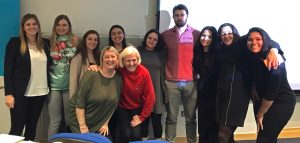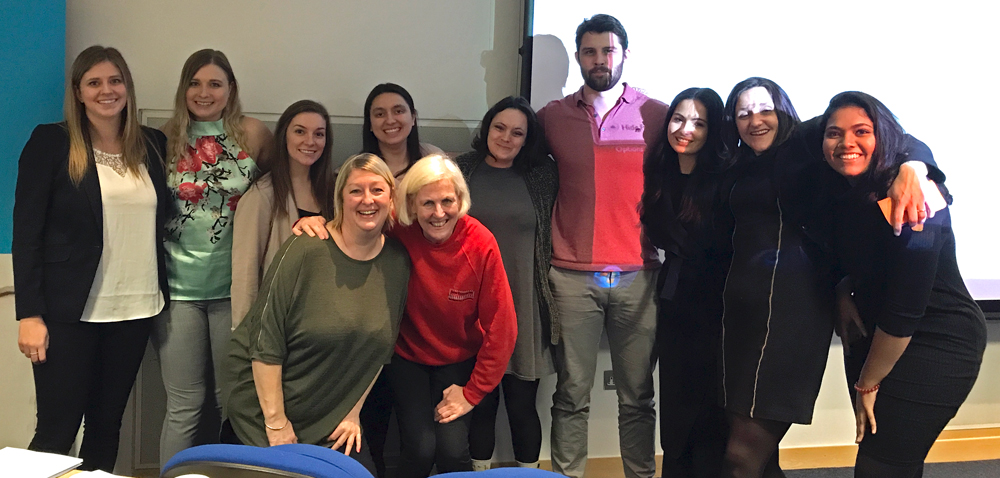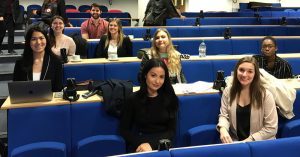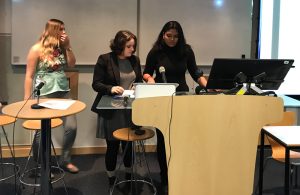In the wake of the UK supreme court’s landmark 2016 judgment in R v Jogee, Kent Law School students have been helping to review cases of prisoners whose convictions may now be unsafe.
The judgment called into question the safety of murder convictions made under the ‘joint enterprise’ doctrine.
Student members of the Law School’s Criminal Justice Project have been working with grassroots campaign JENGbA (Joint Enterprise: Not Guilty by Association) on three cases as part of a broader Joint Enterprise Appeals Project (JEAP) involving 13 universities across the UK.
JENGbA has been challenging the legal doctrine of joint enterprise since 2010, launching JEAP in a bid to identify cases where there may now be grounds for appeal. JENGbA has also called for an independent judicial inquiry.
The law of joint enterprise recognises that a person is liable for a criminal offence when committed by another person if both embark on a joint criminal venture. Prior to the 2016 judgment, the law also held that a secondary party only had to foresee the possibility that the principal offender might commit a further crime.
On 18 February 2016, the UK Supreme Court ruling of R v Jogee found that the courts had been misinterpreting the joint enterprise laws for the past 30 years. It had been considering the case of Ameen Jogee who was jailed for a murder in Leicester even though it was his friend, Mohammed Adnam Hirsi, who had fatally stabbed the victim Paul Fyfe. The Supreme Court held that the application of the joint enterprise doctrine had taken a “wrong turn” and needed correcting; as well as foresight, prosecutors would now be required to prove intention for the deed to happen.
Lecturer Johanne Thomspon, who coordinates the JEAP project at Kent Law School, said: ‘The Supreme Court decision on Jogee was a legal victory for those who had campaigned for many years saying that there was a serious problem with the law.’
Teams of Kent Law School students, working under the supervision of Johanne and Kent Law Clinic solicitor Hannah Uglow, were asked to review three cases. As work began, Johanne invited Felicity Gerry QC, who led the defence team in R v Jogee, to speak to the students involved in October last year.
The students began by conducting a case review. They had to consider whether, as a result of the re-statement of the law, each case had the potential to meet the high test of ‘substantial injustice’ for leave to appeal as set down by the Supreme Court. This test requires an individual to show that, if the jury were to be directed as they would in the wake of R v Jogee, that it would be highly unlikely they would have been convicted.
Felicity Gerry cautioned students that, as the threshold for the test of substantial injustice was very high, it was likely that any future appeals would fail. But she also encouraged students to “do your hardest to fight your corner.” (A fuller account of Felicity’s visit was written up by final-year law student Lucy Rose Gillman on her blog.)
In two out of the three cases, students found that the requirement for proving intention as well as foresight had already been applied, rendering grounds for an appeal unlikely. The third was borderline and prompted students to consider alternative ways to appeal.
Students presented their findings of all three cases to JENGbA (and other JEAP participants) at the first conference in London earlier this month. JENGbA will collate the findings of participating universities to assist in their ongoing campaign for legislative change. The conference also discussed alternative strategies for using the law to correct miscarriages of justice.
Kent students who conducted the case reviews said that the experience had greatly improved their understanding of how the law works beyond their textbooks.
Johanne said: ‘This has been an excellent opportunity for our students to see and experience law in action. And their contact with JENGbA has brought home to them the impact on the families and loved ones of those convicted under the doctrine of joint enterprise.’
Law student Carly Krueger said: ‘We learned that changes take a very long time – it took 30 years for the supreme court to recognise a “wrong turn in the law” and that Jogee is a huge strain on the criminal justice system, making it extremely difficult for any successful appeals.’
And law student Dhyuthi Velugula said: ‘It has been an incredibly fulfilling experience. We’ve gone beyond simply using the technical skills (like research) that we’ve learnt in the course of our study, to fully and completely engaging every skill, legal or otherwise, in our arsenal to study the cases we’ve been given. It’s one thing to study the criminal justice system as a third party with an objective view, but it’s quite another thing to be involved, and be aware of the effect of the fallacies and loopholes that have been enshrined within the system.
‘It has been amazing to have the opportunity to be involved in something like this and to have the chance to make a real difference in peoples’ lives. I came to study law because a small part of me wanted to be a hero for those who could not be that for themselves. Being able to be a part of this project has assured me that I’m on the right path.’




